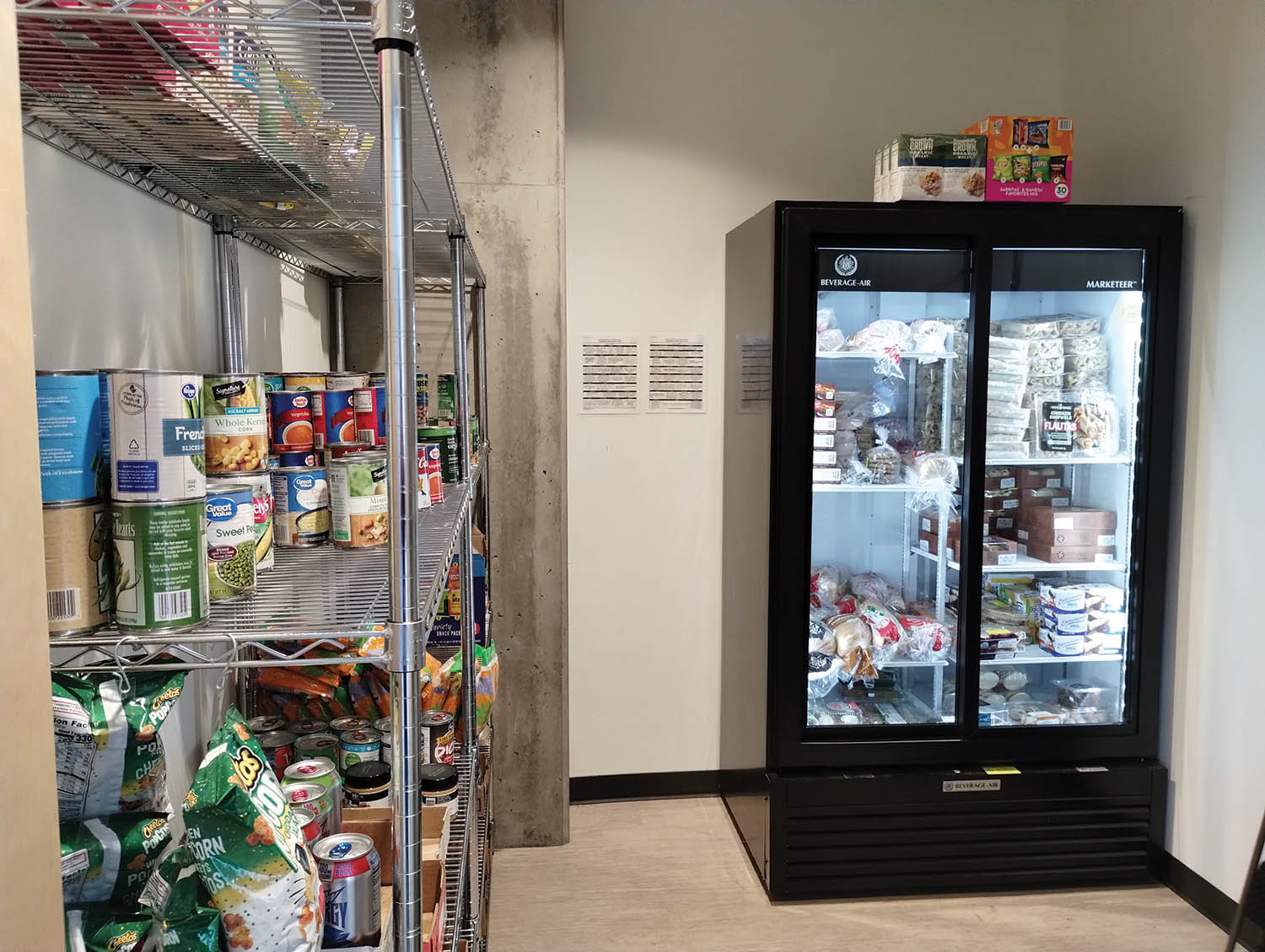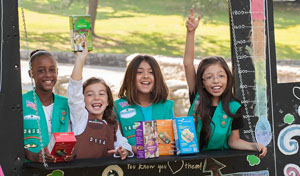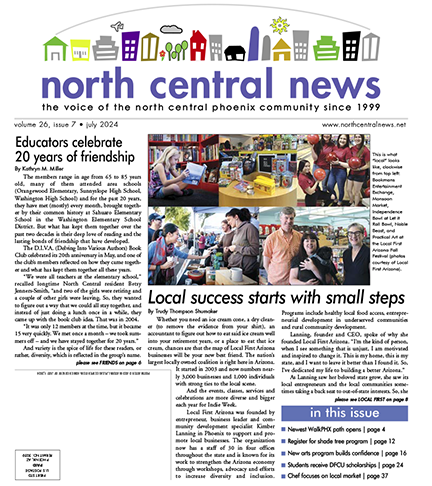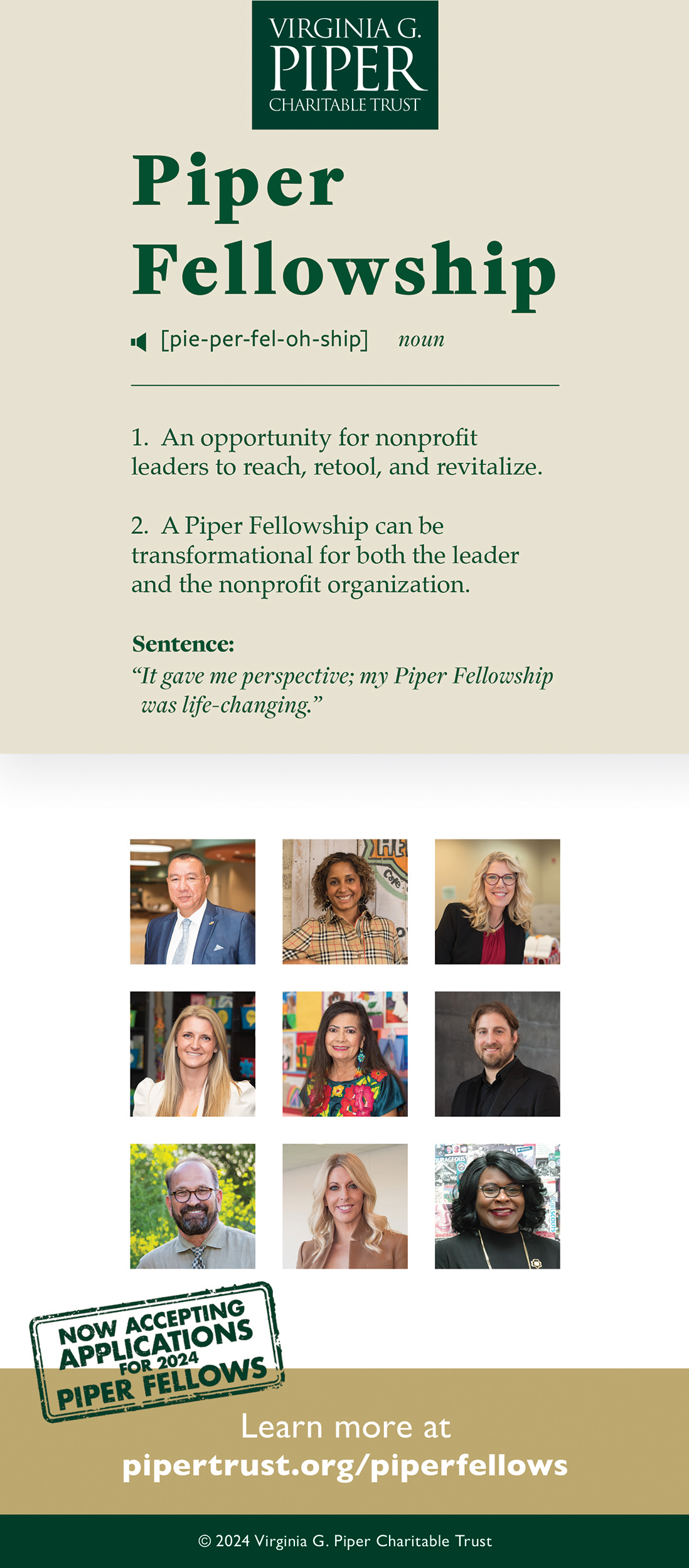
The pantry at the Acacia Heights affordable living community serves nearly 90 residents age 62 and older (photo by Kathryn M. Miller).
As Valley families prepare to sit down to holiday meals together, there is a growing population of older residents for whom hunger is a reality.
Food banks and other charitable food sources were crucial to many families in the early months of the pandemic, and a 2021 Well-Being and Basic Needs Survey conducted by the Urban Institute found that, two years later, charitable food obtained through food pantry or donations remains an essential resource for one in six adults. Which is where organizations like Foundation for Senior Living (FSL) step in.
“With a focus on the underserved, our mission comes to life as we provide home and community-based services and develop energy efficient, affordable housing to promote health, independence and dignity for all,” said Tami Bohannon, FSL president and CEO.
FSL was founded in 1974, and in addition to its adult day health centers, or ReCreación program, and other services provided, the organization now operates 25 different affordable housing communities across the state — they provide food pantries in nearly all of them.
“We’re seeing a lot of food insecurity with the people that we serve,” said Bohannon when we spoke from one housing community, Acacia Heights.
“We have had a tremendous need for food, both perishable and nonperishable. We’ve especially seen a surge over the summer months and the fall months. As inflation increases, costs increase, and people can’t stretch their dollars.”
Located off of 7th Avenue and Pierson in the Melrose District, Acacia Heights opened in December 2020. The community consists of 78 units that are home to 87 residents age 62 and older. There are income guidelines that residents must meet to qualify for residence, and most Acacia residents receive SNAP benefits (Supplemental Nutrition Assistance Program). But that only equates to $16 a month, leaving a growing gap in food budgets.
Bohannon added that healthy food is vitally important to older adults.
“Most seniors have at least one chronic illness; 92 percent of seniors have two chronic illnesses,” she said. “When you have those chronic illnesses and you have food insecurity and get $16 a month, then it’s easy to buy inexpensive food that maybe isn’t so healthy.”
She added that the organization receive donations and partners with St. Mary’s Food Bank to help stock their pantries, but the need is great.
“We want to make sure that these folks are fed and that their food insecurity is greatly diminished. We want them to stay healthy and to be able to live independently.”
FSL welcomes donations from the community, Bohannon said. Whether that is in the form of individual donations or coordinating a food drive, “that food would be shared here and then in our other communities.”
Residents who would like to make a food donation should contact the FSL main office at 602-285-1800.
The organization’s efforts extend beyond affordable housing and day health centers. They also offer resources to help keep older residents at home.
“We have this philosophy that if someone’s home, then that’s going to improve their health,” Bohannon added. “If they’re housed and they’ve got nutritious food and they’ve got connections and community, that’s just going to improve their health outcomes.”
And the resources are not just for older residents. They also focus on caregivers, 80 percent of whom are family members. During November, which is National Family Caregiver month, they will hold three open houses offering information and respite for caregivers. In Phoenix, visit the Central ReCreación Center at 3620 N. 4th Ave. on Nov. 29 from 4–6 p.m. Families can register at rsvp@fsl.org or call or 602-285-0505 x329.
For more information, visit www.fsl.org.









































